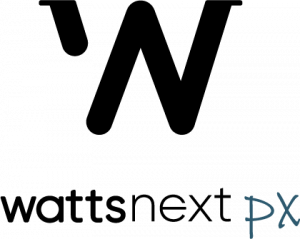Having run an HR management consulting firm for 17 years, I’ve witnessed significant changes in the workforce. When I first started, social media wasn’t a tool for marketing, and HR systems were rudimentary at best. Over time, we’ve seen tremendous advancements in technology, impacting both business operations and employee experiences. Despite these changes, the core challenges faced by leaders have remained remarkably consistent.
The Evolution of the Workforce
Although there are many, let’s start by looking at a couple of specific factors in the workforce that have changed over the years.
The Social Media Era
In the early days of my career, we didn’t rely on social media for marketing. Today, platforms like LinkedIn and Instagram are indispensable for business outreach. Similarly, HR systems have evolved from basic spreadsheets to sophisticated software that can manage everything from payroll to performance reviews.
Back then, marketing was all about print ads, direct mail, and networking events. Social media has revolutionized the way we connect with potential clients and employees. It’s incredible how a well-timed post can reach thousands of people instantly, something we could only dream of years ago.
Processes & Technology
The same goes for processes: manual processes were the norm, and keeping track of employee records was a cumbersome task. Now, with advanced HR software, we can manage everything seamlessly. From payroll to performance reviews, technology has made HR processes more efficient and accurate.
Work-life balance
Seventeen years ago, the concept of work-life balance was just starting to gain traction. Over time, this has evolved into a broader focus on flexibility, health, and well-being. The COVID-19 pandemic further accelerated these changes, highlighting the importance of remote work and flexible schedules.
The early days of promoting work-life balance were challenging. Employers were skeptical, and employees were unsure how to integrate it into their lives. It was a learning curve for everyone involved. Today, flexibility isn’t just a perk; it’s a necessity. The pandemic showed us that remote work can be productive and beneficial for both employers and employees. Health and well-being have taken center stage, with companies offering mental health support and wellness programs.
The Generational Shift
The workforce has also seen generational shifts, with millennials and Generation Z bringing new attitudes and expectations. Millennials introduced a preference for purpose-driven work and collaborative environments, while Gen Z values flexibility, technology integration, and social responsibility.
Millennials: This generation values meaningful work and a sense of purpose. They thrive in collaborative environments and seek employers who align with their values. It’s been fascinating to see how their presence has reshaped workplace cultures.
Generation Z: Gen Z is all about flexibility and technology. They grew up with smartphones and social media, and they expect the workplace to reflect that. Social responsibility is crucial to them, and they prefer working for companies that prioritize sustainability and ethical practices.
The Unchanging Challenges of Leadership
Despite these significant changes, the core issues that leaders face remain consistent. People are inherently unpredictable, and managing them effectively is a continuous learning process. Let’s dive deeper into these unchanging challenges.
Key Leadership Challenges
- Difficult Conversations
One of the most common challenges leaders face is navigating difficult conversations. Whether it’s giving constructive feedback, addressing performance issues, or discussing sensitive topics, these conversations are never easy. I’ve found that many leaders struggle with finding the right balance between being direct and being empathetic. It’s important to approach these discussions with a clear mind, focusing on the issue at hand while being mindful of the individual’s feelings.
- Improving Leadership Skills
Leadership isn’t a one-and-done deal. It’s an ongoing journey of learning and growth. I often tell my clients that being a leader means being a perpetual student. There’s always something new to learn, whether it’s a new management technique, a better way to motivate your team, or a fresh perspective on problem-solving. Continuous improvement is crucial for staying effective.
- Seek Feedback: Regularly ask for feedback from your team and peers. This helps you identify areas for improvement. Constructive criticism is a valuable tool for growth.
- Invest in Professional Development: Attend workshops, seminars, and courses to keep your skills sharp. Staying updated with the latest trends and practices can give you an edge.
- Reflect on Your Experiences: Take time to reflect on your successes and failures. This helps you learn from past experiences. Journaling can be a great way to process your thoughts and track your progress.
- Consistency in Challenges
Over the past 17 years, despite the world changing dramatically, the same core problems keep cropping up. This consistency underscores the complexities of human behavior. Leaders constantly face issues related to motivation, conflict resolution, and maintaining morale. It’s fascinating to see how, despite new technologies and changing workplace dynamics, these fundamental challenges remain.
- Understand Human Behavior: Take time to study and understand the basic principles of human behavior. This helps in anticipating and managing employee reactions. Books on psychology and human behavior can be enlightening.
- Develop Strong Relationships: Build strong, trusting relationships with your team members. This makes it easier to navigate challenges together. Trust is the foundation of any successful team.
- Stay Adaptable: Be willing to adjust your approach as needed. Flexibility is key in managing an ever-changing workforce. Embrace change and encourage your team to do the same.
Given these challenges, what can leaders do to navigate them effectively? Here are some strategies that have worked for me and my clients.
Embrace Continuous Learning: Leadership is not a static skill. It requires ongoing learning and adaptation. Embrace opportunities for professional development, seek feedback, and remain open to new approaches.
Professional Development: Invest in continuous learning opportunities. This could be through formal education, workshops, or online courses. The more you learn, the more you grow.
Feedback Mechanisms: Implement regular feedback loops to enhance leadership skills. Constructive feedback helps you understand your strengths and areas for improvement. Create a culture where feedback is valued and encouraged.
Foster Open Communication: Effective communication is key to navigating the unpredictable nature of people. Create an environment where team members feel comfortable sharing their thoughts and concerns.
Open Dialogue: Encourage transparency and open communication within your team. This builds trust and ensures that issues are addressed promptly. Regular team meetings and one-on-one sessions can facilitate this.
Active Listening: Practice active listening to understand and address employee needs effectively. This shows that you value their input and are willing to act on it. Listening is as important as speaking when it comes to communication.
Adapt to Technological Changes: Leverage advancements in technology to streamline processes and enhance employee experiences. Stay informed about new tools and integrate them into your leadership practices.
Technology Integration: Utilize HR software and collaboration tools to improve efficiency. These tools can help with everything from scheduling to performance tracking. Technology should make your job easier, not harder.
Continuous Improvement: Regularly update and optimize technology use within the organization. This keeps your team equipped with the best tools for their work. Encourage your team to provide feedback on the tools they use and be open to making changes.
There’s no doubt that the workforce has undergone significant changes, yet the core challenges of leadership have remained the same. People are inherently unpredictable, making leadership a complex and ongoing learning experience. Despite advancements in technology and shifting generational dynamics, leaders still grapple with the same fundamental issues.
How have you adapted your leadership style to address these enduring challenges? Share your thoughts and experiences in the comments below!










